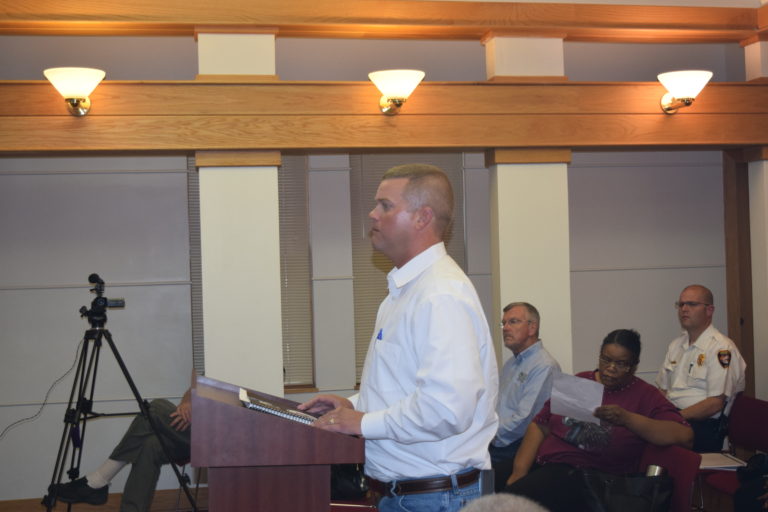THE MORE THINGS STAY THE SAME
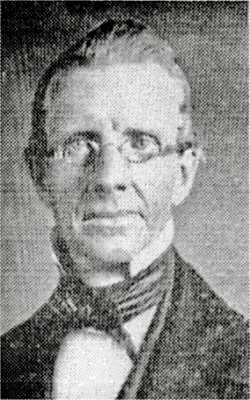
Historical Crockett Letter shows times change but people do not
By Greg Ritchie
Messenger Reporter
CROCKETT – Like everyone who buys something online, it is good to be a little skeptical. To this day, I cannot prove beyond a shadow of a doubt that the tiny, aged letter I possess is in fact genuine. I won this letter at an online auction a couple of years ago and treasure it to this day. It wasn’t that expensive, and it may not be worth the very paper upon which it is printed. There is a bigger message here, which for some reason continues to inspire and captivate me.
General Thomas P. Collins was the oldest of three brothers born in Ireland. He was born January 12, 1800, and it is believed Collins and his brothers arrived in Texas around 1839. There are many historical sources about Collins, but like most sources from the 19th Century, they are high on story and low on detail. I cannot find where the General became a General, but we will leave that title as is.
Collins was one of the first merchants to begin business in Crockett, first establishing a large log store house on the northeast corner of the square. Collins was said to be a man of principal, often telling his daughter, “Truth is such a beautiful thing.”
Collins’ business prospered, and he soon built a house in town and later moved to a large estate west of town later known as Cedar Hill. Collins died July 6, 1869 and is buried in Crockett at the Glenwood Cemetery.
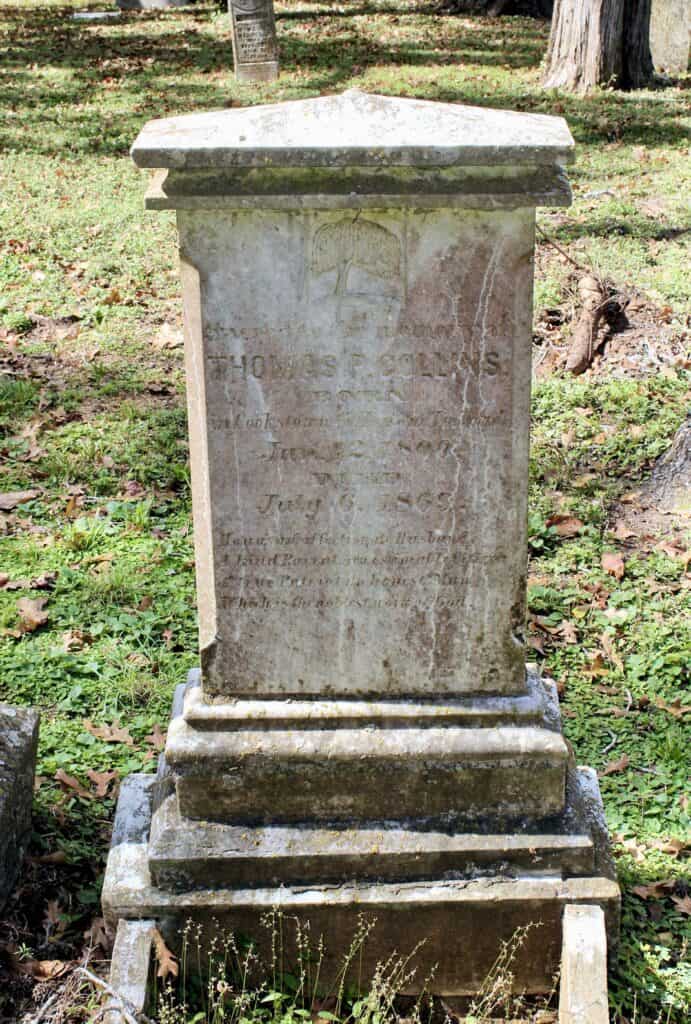
A local historical figure who was born, lived, and died. End of story. Only Collins was a real person, as real as you or me. Along the path of that thing called ‘life’, he had just as many worries, problems, good and bad days as we do today.
History should be experienced, not just from books or documentaries, but walking the ground, touching the uniforms, reading the letters. The letter I was lucky enough to purchase is dated July 15, 1858. It’s a one page letter, with the mailing address on the back side and the letter written inside. It has a three cent Crockett postmark stamped on the outside and is addressed to Messrs T. W.House and Co.
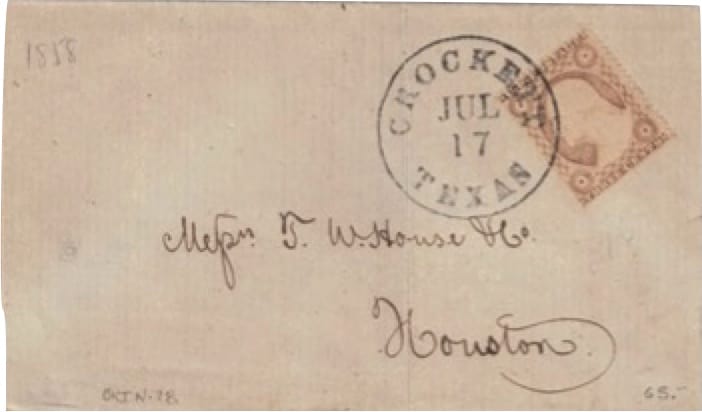
The letter shows Collins at the age of 58, already an established and “successful” local businessman. But just like in our modern times, appearances can be deceiving, and Collins had to deal with late notices just like we do. The letter states:
Gentlemen
Your letter is now before me. I will not send for any Dry Goods but select in Houston, from W. Hutchins and yourselves; he did not say anything about paying promptly, and that far has a stronger claim on me. I do assure you it has not been from choice that I have not all along paid up to the hour, my debtors have been the sole cause, and I suppose, because I was so lenient with them, this I am determined shall not be the case in future, that is, after this year; for if I find I cannot pay at maturity, I shall retire from business to a certainty.
Yours Truly,
Tho. P. Collins
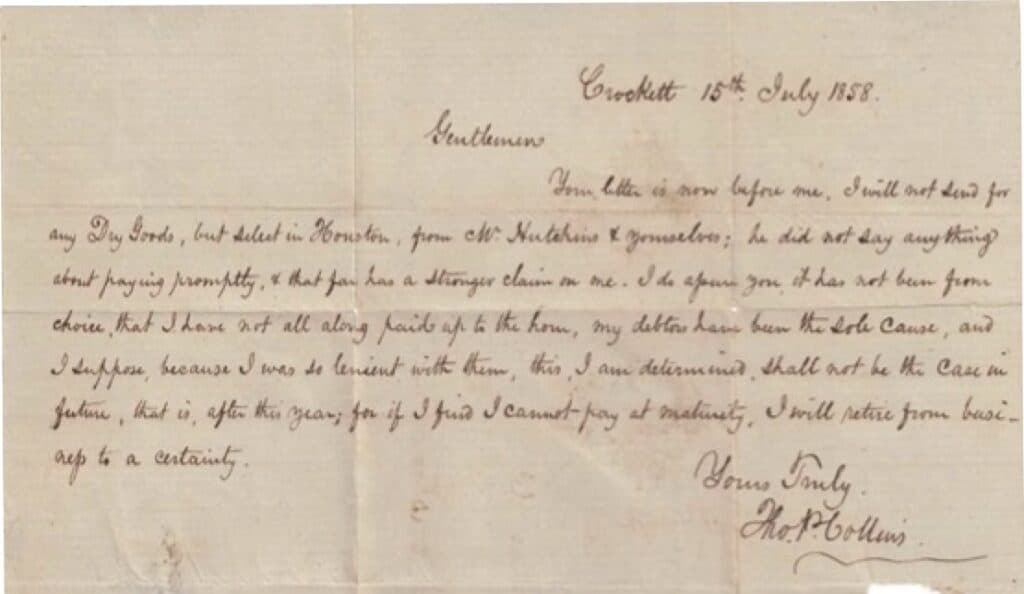
Anyone who has ever owned a business or for that fact, had to pay a light bill, can understand Collins’ situation and mindset. ‘I would like to pay, but people owe me money too, and until they pay, I can’t send any money either.’
It just goes to show, when Crockett was barely 20 years old, and the Civil War was still three years in the future, people paid bills, griped, gossiped, worried about their children and tried to live the best life they could. Just as we do.
Collins is not an unknown character; you can find some of his letters archived at the Briscoe Center for American History at the University of Texas in Austin. He helped build Crockett, left family behind, and through small pieces of his life like this letter, shows us a glimpse of life long before our time.
I think about this letter sometimes when life threatens to overwhelm me. To be able to hold this living piece of history in your hand teaches you something. It unites us with the people who came before us. The next time you are struggling to pay that bill, worried about ‘keeping up with the Jones’, or nervous about what the neighbors may think, maybe you too can take some solace from General Thomas Collins.
In the newspaper of the day, the Crockett Argus, Collins took out an ad telling people he would be out of town for a while and to treat his store and employees well. His words show some of the grit and honesty that defined the man. A grit and honesty sometimes in short supply these days.
Collins warned if he hears people have tried to cheat him while he is away, “I will stay with you
until a certain hot place (which shall be nameless) will freeze over four feet thick!”
Greg Ritchie can be reached at [email protected]



